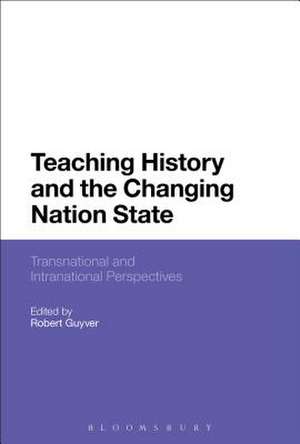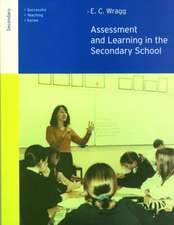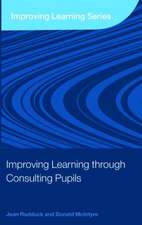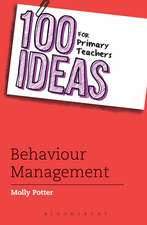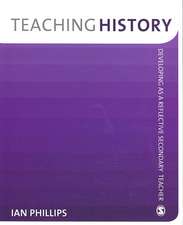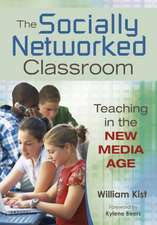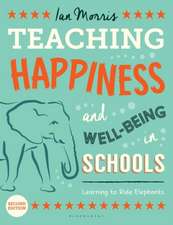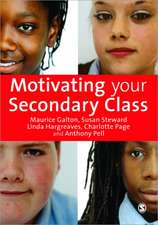Teaching History and the Changing Nation State: Transnational and Intranational Perspectives
Editat de Robert Guyveren Limba Engleză Hardback – 10 feb 2016
| Toate formatele și edițiile | Preț | Express |
|---|---|---|
| Paperback (1) | 259.07 lei 6-8 săpt. | +59.29 lei 5-11 zile |
| Bloomsbury Publishing – 23 aug 2017 | 259.07 lei 6-8 săpt. | +59.29 lei 5-11 zile |
| Hardback (1) | 775.51 lei 6-8 săpt. | |
| Bloomsbury Publishing – 10 feb 2016 | 775.51 lei 6-8 săpt. |
Preț: 775.51 lei
Preț vechi: 1113.92 lei
-30% Nou
Puncte Express: 1163
Preț estimativ în valută:
148.39€ • 155.35$ • 122.79£
148.39€ • 155.35$ • 122.79£
Carte tipărită la comandă
Livrare economică 07-21 aprilie
Preluare comenzi: 021 569.72.76
Specificații
ISBN-13: 9781474225878
ISBN-10: 147422587X
Pagini: 312
Dimensiuni: 156 x 234 x 20 mm
Greutate: 0.62 kg
Editura: Bloomsbury Publishing
Colecția Bloomsbury Academic
Locul publicării:London, United Kingdom
ISBN-10: 147422587X
Pagini: 312
Dimensiuni: 156 x 234 x 20 mm
Greutate: 0.62 kg
Editura: Bloomsbury Publishing
Colecția Bloomsbury Academic
Locul publicării:London, United Kingdom
Caracteristici
Explores difference and similarities in the approaches to teaching both nationally and transnationally around the world
Notă biografică
Robert Guyver is Adjunct Associate Professor in the Faculty of Education at the University of Tasmania, Australia.
Cuprins
Introduction, Robert Guyver, University of St Mark & St John, UKPart I: Shared Histories in Transnational and Intranational Post-Conflict Settings1. Palestine: Reframing Palestine in the Post-Oslo Period, Nadia Naser-Najjab, University of Exeter, UK and Ilan Pappé, University of Exeter, UK2. Russia and Ukraine: Perspectives of Professional History Educators on Societies in Transition, Tamara Eidelman, History Teachers Association of Moscow, Russia, Polina Verbytska, Lviv Polytechnic National University, Ukraine, Jonathan Even-Zohar, Euroclio Secretariat, The Netherlands3. Republic of Ireland and Northern Ireland: Eroded Certainties and New Possibilities, Fionnuala Waldron, St Patrick's College, Ireland, and Alan McCully, University of Ulster, UK4. Turkey and Greece: Reconstructing a Shared Past, Gülçin Dilek, Sinop University, Turkey, and Eleni Filippidou, National and Kapodistrian University of Athens, Greece5. South Africa and Rwanda: Remembering or Forgetting? Gail Weldon, Education Consultant, South Africa6.Part I Discussant, Robert Guyver, University of St Mark & St John, UKPart II: Shared Histories in Post-Colonial Settings7. Portugal and Brazil: How Much of 'Our' Past is 'Theirs' Too? Marlene Cainelli, State University of Londrina, Brazil, Helena Pinto, Agrupamento de Escolas do Vale de S. Torcato, Portugal and Glória Solé, University of Minho, Portugal8. The United States: Learning About Native American History, Cyndi Mottola Poole, University of Pittsburgh, USA9. England and the UK: Conflict and Consensus over Curriculum, Robert Guyver, University of St Mark & St John, UK10. Part II Discussant, Robert Guyver, University of St Mark & St John, UKPart III: Comparative Settings - Federations, Shared Histories and Emerging Democracies11. The Russian Federation and Australia: Comparing Like with Unlike, Tony Taylor, University of Technology Sydney, Australia12. Spain: History Education and Nationalism Conflicts, Ramón Lopez-Facal, University of Santiago de Compostela, Spain and Jorge Sáiz Serrano, University of Valencia, Spain13. Part III Discussant, Robert Guyver, University of St Mark & St John, UKPart IV: Shared History as a Transnational and Intranational Landmark with Questions14. Turkey, Australia and Gallipoli: The Challenges of a Shared History, Jennifer Lawless, New South Wales Board of Studies, Australia and Sedat Bulgu, Translator/Interpreter, Turkey15. New Zealand and Australia: ANZAC and Gallipoli in the 21st Century, Tony Taylor, University of Technology Sydney, Australia and Mark Sheehan, Victoria University of Wellington, New Zealand16. Part IV Discussant, Robert Guyver, University of St Mark & St John, UKConclusions, Robert Guyver, University of St Mark & St John, UKReferencesIndex
Recenzii
The audience for the book will no doubt be a broad one consisting of history teachers and teacher educators as well as those connected and interested in history and comparative education more generally ... It is a thoughtful, rich and constructive collection which makes a strong case for reconsidering the persistence of nationstate approaches to the teaching of history and offers new and interesting ways in which this might be done.
This is an important and timely collection, which will allow the engagement with how "history" is, and has been, used in a range of different national contexts. The themes of shared histories, commemorations and ideas of the nation and transnational questions are explored in a very wide and attractive range of places - the UK and the USA, Brazil, Portugal, Australia and Palestine. How these different issues have been embedded in teaching practices and then connect to issues of public debate are explored and analysed. The idea of "landmarks with questions" connects the national need for narratives, with the more sensitive matter of denial and contemporary use - there are valuable discussions for example of Gallipoli, Rwanda and the post-colonial challenges in the UK, Spain and the Ukraine. The collection will, without doubt become the standard for engaging with the ever pressing and important debates about the role of history in the public sphere today. Every historian whether teaching at school level, university or part of the general public will benefit from exploring and reflecting upon the arguments and example. A book very much for our times.
This is an important and timely collection, which will allow the engagement with how "history" is, and has been, used in a range of different national contexts. The themes of shared histories, commemorations and ideas of the nation and transnational questions are explored in a very wide and attractive range of places - the UK and the USA, Brazil, Portugal, Australia and Palestine. How these different issues have been embedded in teaching practices and then connect to issues of public debate are explored and analysed. The idea of "landmarks with questions" connects the national need for narratives, with the more sensitive matter of denial and contemporary use - there are valuable discussions for example of Gallipoli, Rwanda and the post-colonial challenges in the UK, Spain and the Ukraine. The collection will, without doubt become the standard for engaging with the ever pressing and important debates about the role of history in the public sphere today. Every historian whether teaching at school level, university or part of the general public will benefit from exploring and reflecting upon the arguments and example. A book very much for our times.
